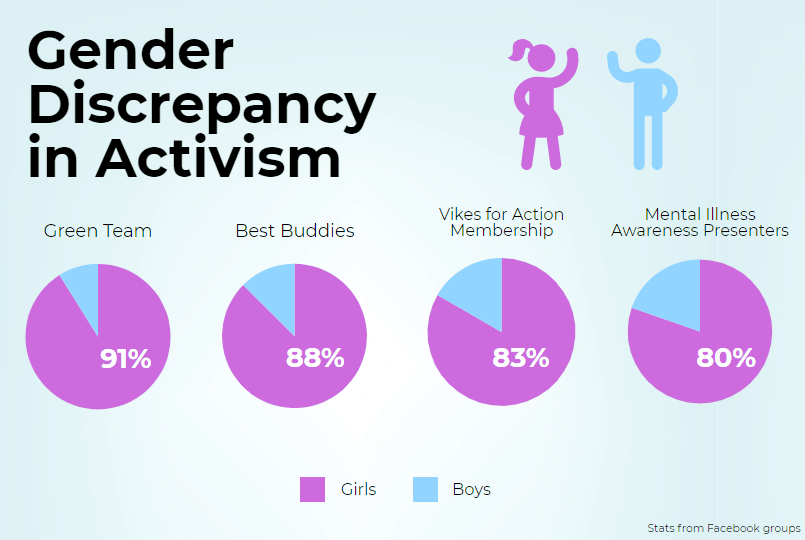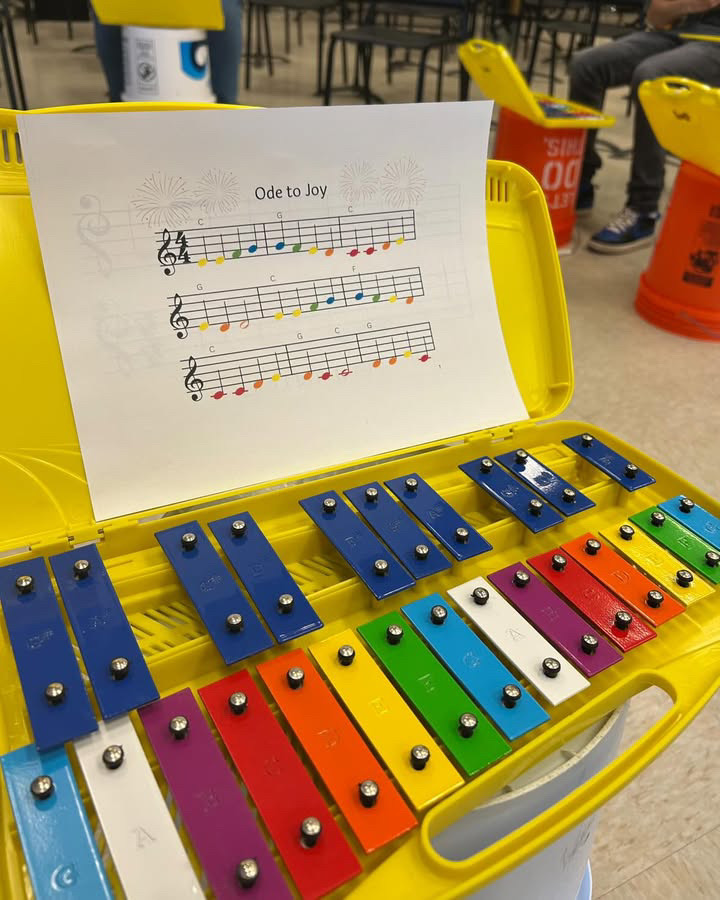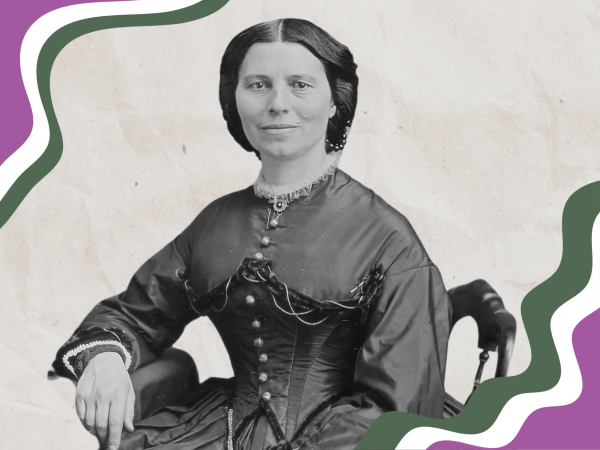Boys: don’t let activism become a ‘girl thing’
April 12, 2018
At a lunchtime meeting preparing for Whitman’s mental health seminars, I looked around the classroom at the students volunteering. I found a frustratingly familiar scene: almost every person in the room—28 of the 32 students to be exact—was a girl.
We live in a very inspiring time for high schoolers, with students across the country rising up in force to fight for the issues they care about. At Whitman, though, there’s a glaring disparity in those who participate in this movement: boys are extremely underrepresented.
A few weeks ago, a junior girl posted in Whitmaniacs, asking interested students to join a group for discussing ideas for gun control—an issue, notably, that has no relation to gender. About 70 girls commented, compared to only about 20 boys. Similarly, the Vikes for Action Facebook group includes 45 girls and just 11 boys.
The gap in activism participation isn’t unique to political issues. A few weeks ago, Best Buddies ran their Spread the Word to End the Word campaign. They told me significantly fewer boys than girls agreed to put their handprints on the wall and say the pledge. Social media told a similar story: almost every post or story supporting the campaign appeared on a girl’s account. As a boy familiar with Whitman’s culture, I can guarantee that it would’ve taken some ridiculous guts for any male to post that.
Whitman guys aren’t bad people. I love Whitman guys—they’re my best friends on Earth. In fact, I know that they believe in many of the same issues their protesting peers do, and some do participate enthusiastically in activism. But we Whitman males, as a collective group, have allowed the creation of a culture that often says that protesting is a “girl thing,” which implies that being a socially aware guy simply isn’t cool.
It’s a culture that is apparent every day in conversations between guys; blatantly ignoring political correctness is comical, and offensive comments are the norm.
And when people do stand up against crass comments or behavior, they often get laughed at and judged by their peers. In fact, there isn’t a doubt in my mind that I will be “roasted” for writing this.
But I’m writing it anyway, because it matters. It’s not that being politically incorrect in casual conversation is a huge problem in itself; however, it leads to a culture of innaction that stigmatizes supporting what you believe in. By extension, the valuable voices of many Whitman guys are silenced.
I’m not saying every Whitman boy needs to suddenly become some zealous activist. But simply choosing to praise or respect, rather than scorn, guys who do wish to advocate for what they believe in could make helping out and participating in these campaigns more inviting for everyone.
When I went to the National Student Walkout for Gun Control in D.C. Mar. 14, I was amazed and thrilled to see how many boys decided to come. A female friend remarked that she was surprised by the male turnout, and I told her I was as well.
The march demonstrated that when the male community finally decides something is “cool” to advocate for, they will come out in full force for it. In this era of student activism, having the support of the entire population, rather than just half, is invaluable.












Theodore Kupenstein • Apr 13, 2018 at 8:30 am
Gun control is stupid. Not cool to advocate for a stupid policy. How about running some conservative pieces on this liberal rag